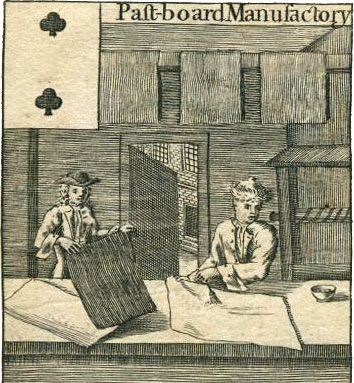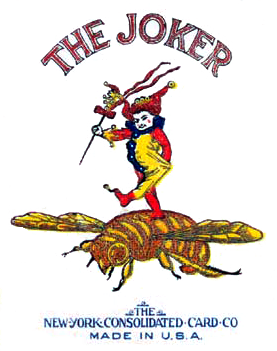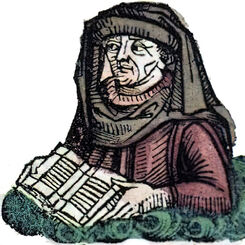Search 4,447 articles...
Africa
Algeria
Argentina
Australia
Austria
Bahamas
Belarus
Belgium
Bhutan
Bolivia
Brazil
Bulgaria
Canada
Catalonia
Ceylon
Chile
China
Colombia
Cook Islands
Costa Rica
Croatia
Cuba
Cyprus
Czech Republic
Czechoslovakia
Denmark
Dominican
Ecuador
Egypt
Estonia
Ethiopia
Europe
Finland
France
Georgia
Germany
Greece
Greenland
Guatemala
Guernsey
Honduras
Hong Kong
Hungary
Iceland
India
Indonesia
Iran
Iraq
Ireland
Isle of Man
Israel
Italy
Jamaica
Japan
Jordan
Kenya
Korea
Latin America
Latvia
Lebanon
Liechtenstein
Lithuania
Luxembourg
Madagascar
Malaysia
Maldives
Malta
Mauritius
Mexico
Monaco
Mongolia
Morocco
Myanmar (Burma)
Nepal
Netherlands
New Zealand
Nigeria
Norway
Panama
Papua New Guinea
Paraguay
Peru
Philippines
Poland
Portugal
Puerto Rico
Romania
Russia
Salvador
San Marino
Scandinavia
Scotland
Singapore
South Africa
Spain
Suriname
Sweden
Switzerland
Tahiti / French Polynesia
Taiwan
Thailand
Trinidad and Tobago
Tunisia
Turkey
Ukraine
United Arab Emirates
United Kingdom
Uruguay
USA
Venezuela
Vietnam (Việt Nam)
Wales

Abstract
Aces
Advertising 421
Affirmations
African-American
Alice in Wonderland
Americana
Amerindian 33
Animation
Anime
Anonymous
Antique
Arabic
Architecture
Army
Art & Design 295
Art Deco
Art Gallery 33
Art Nouveau & Jugendstil 30
Artificial Intelligence (AI)
Asescoin
Asterix
Astrology
Astronomy
Aviation 50
Backs
Banking & Finance
Bath
Batman
Bavaria
Benno
Biblical
Bingo
Black-Peter
Blyton
Bolognese
Botany
Bourgeois
Breweries 50
Brexit
Brittany
Bullfight
Canaries
Cannabis
Card-Sharping
Cardistry
Caricatures 63
Cartomancy 95
Cartoon 125
Casino
Cats
Celtic
Cerveza
Chess
Chibi
Childhood 72
Children
Chocolate
Chromolithography
Circular
Circus
Clown
Cocktail
Collaborative 39
Collecting
Collectors
Colouring
Columbus
Comic Books 32
Commemorative 111
Computers & Technology
Counties
Courts
Craft
Cubism
Currency
Cyberpunk
Designers
Dickens
Digital
Distillery
Dogs
Donkey
Dragons
Dynasties
Education 139
Engineering
Engraved
Ephemera 61
Erotic
Estanco
Ethnic & Indigenous 120
Etteilla
Excise
Exposition
Facsimiles & Replicas 85
Fanning
Fantasy 90
Fashion & Costume 85
Fasnachtskarten
Firearms
Folklore 76
Food & Cooking 51
Football 34
Four Colour
Frizzle Ace
Galicia
Gardel
Garter Ace
Gaucho
Gender Equality
Geography
Golly
Gothic
Halloween
Hand-Painted
Health 41
Heraldry
Hindu
Hispanoamericana
Historic
Historical 31
History 174
Humour 123
Hunting
Illuminated
Imperial
Importer
Impuestos
Indices
Inka
Innovation 34
Joker
Jubilee
Kickstarter 115
Lady Charlotte Schreiber
Literature 89
Luxury 36
Magic
Manga
Manufacturing Processes
Maori
Maps
Masonic
Matches
Mathematical
Medical & Pharmaceutical 34
Medieval 38
Metal
Microscopique
Military 38
Minchiate
Miniature 67
minimalist
Most Wanted
Movies & Film 105
Music 79
Myths & Legends 44
Napoleon
NASA
Nationalism
Nature & Environment 150
Navy 38
Neapolitan
Nestlé
No Revoke
Notgeld
Olympics
On the Cards 30
Oracle
Orientalism
Palekh
Paper
Patent
Patriotic
PDF 79
Peter Pan
Philately
Philips
Photography 89
Pin-up 32
Pirates
Poetry
Political 180
Pop Culture 107
Postmodern
Printing
Prison
Propaganda
Proverbs
Psychology
Questions
Railway
Rawhide
recycled
Relationships
Religion
Renaissance
Revolution
Rococo
Rokoko
Royalty 87
Safety
Sample Books
Sardinia
Satire 35
Scenic
Sci-Fi 39
Secondary Uses
Shakespeare
Shipping 36
Sicilian
silk
Social Justice
Solitaire
Souvenir 238
Space
Spelling
Sports 121
Stained-Glass
Stars
Steam-power
Steampunk
Stencilling
Superheroes
Superman
Surrealism
Swastika
Symbols
Tango
Tarot 124
Tartan
Tattoo
Taurino
Tax
Tea
Telecommunications
Television 42
Theatre 38
Tobacco 56
Topographical
Toy Cards
Trade-cards
Trades & Professions
Transformation 96
Translucent
Transport 62
Trappola
Truco
Turnhout
Ukiyo-e
Victorian 38
Video Games
Videos
Vsoe
Warburg
Wartime 107
Water Margin
Whisky
Wills
Wine
Winnie-the-Pooh
Woodblock
Woodland
Zodiac
Zombies
Zoology
Aluette 6Baccarat 2Bézique 20Blackjack 4Bridge 35Calabrasella Canasta 4Card Games 695Check Cribbage 10Cuccu 5Gambling 19Gaming 16Gnav 4Happy Families 104Hindooy Jass 9Kabufuda Khanhoo Kille Kuhn Khan 2Mahjong 2Mercante in Fiera 2Misfitz 29Old Maid 23Ombre Patience 45Penchant pinochle Piquet 10Poker 18Quartet 81Quinto Rummy Schafkopf 2Schnapsen Skat 32Snap 104Tarocchi 14Tarocchini Tarocchino 2Tarocco 9Tarock 39The Club Series Whist 31
Akahachi Ansbach Archaic Patterns 51As-Nas 3Auvergne Pattern Bavarian Pattern 10Bohemian or Prager Pattern 5Boisse Burgundy Pattern 3Cadiz-Pattern 23Castilian Pattern 6Catalan Pattern 39Ceki 4Dasavatara Dauphiné 2Domino-Suited 14Dutch Pattern 2Florentine Pattern 5Foochow Franco-Spanish 2French Catalan Pattern 3Fribourg pattern Ganjifa 7Genoese Pattern 13Guarro Pattern 6Hanafuda 4Hokkien 3Hungarian Seasons Pattern 7Hwatu 4Kabu Komaru Kurofuda Languedoc Pattern 3Lenormand 10Llombart Pattern 4Lombard Pattern Lyons 4Maciá Pattern 2Madiao 2Mamluk 6Mekuri 3Money-Suited 5Moorish 11Navarra Pattern 6Nürnberg Pai 7Paris Pattern 19Parisian Pattern 7Patterns and Suit Types 67Penang Petit Etteilla 2Piacentine Piedmont 4Piemontese 4Portuguese Pattern 16Provence Pattern 2Prussian Pattern 2Raimundo García Pattern 5Rhineland 4Rider-Waite Tarot 14Salzburger Saxon Pattern Spanish National Pattern 18Spanish Suited 89Standard Pattern 25Suits 38Tarot de Besançon 2Tarot de Marseille 9Thoth 3Vienna Pattern 2
Benfica Football Club Britney Spears DC Comics 3DeMarco Productions Disney 69Doctor Who 4Dungeons & Dragons 3Family Guy Game of Thrones 2Guinness 3Harry Potter 4Hello Kitty 2James Bond 4Marvel 5Mr. Men™ Noddy 2PBR Pinocchio 7Playboy 5Pro Entertainment Rupert Bear 2Science Museum Star Trek 2Star Wars 4The Beatles 3The Lord of the Rings 2The Matrix The Simpsons 3Warner Bros Winterland Productions
 A.S.S. 54
AGMüller
Aleksandr Lutkovskii
Alf Cooke / Universal 27
Altapo-Vigno
Altenburger Spielkartenfabrik 40
Amalgamated Playing Card Co
American Bank Note
American Playing Card Co
Andrew Jones Art
Angel
anonymous
Anton Llombart
ARRCO
Aspioti Elka A.E.
Astra
Backofen
Bancks Bros
Baumgärtner
BBC
Berger
Berliner Spielkarten
Bielefelder
Biermans
Bird Playing Cards
Blanchard
Boéchat Frères
Brepols
British Heritage Ltd
British Playing Cards
Brotherton
Brown & Bigelow
Cambissa
Camoin
Cappellano
Carreras Ltd
Cartamundi 124
Casabó
Castell Bros 92
Chad Valley 27
Chiefton Products
Chitrashala Press
Cia Gral Fabril Financiera S.A.
Cía Gral Fósforos Montevideana
Clemente Jacques
Clifford
Collier
Colour Printing Plant
Copag
Crehore
Creswick
Cromy
Cultzilla
CWS Print Works
D.C. Thomson & Co.
Dal Negro
Dark Horse
Daveluy
De la Rue 139
Deakin & Co
Della Penna
Dieudonné
Difusora S.A.
Distigráfica
Domec
Domicelj
Dondorf 58
Dougherty
Draeger Frères
Dubois
Durá
Dusserre 26
Eagle Playing Card Co
Editions Arts et Lettres
Editions Face&Dos
Edizone Il Meneghello
EuroCard
Expert Playing Card Co.
F.G. & Co
Fabr de Naipes de España
Fairchild
Faulkner 42
Félix Solesio
Fetscher
Figure Dynamics
Fireside Game Co.
Flaiban
Flemming & Wiskott
Fossorier Amar et Cie
Fourvel
Fox
France Cartes
Fratelli Armanino
Fuller
Games & Print Services
Gerich Karl 32
Gibert
Gibson & Co
Gibsons Games
Glanz
Göbl
Gombau
Goodall 83
Gráfica 2001
Gráfica S.A.
Green Board Game Co Ltd.
Grimaud 62
Guarro
Gumppenberg
Hall
Hall & Son
Hardy
Hart
HCG
Hee Trading Co
Heraclio Fournier 95
Heritage Playing Card Co
Héron
Hewson
Hija de B Fournier
Hijos de Heraclio Fournier
Himalayan MapHouse
Holmblad
Hudson
Hunt
Hunt & Sons
Imperial Playing Card Factory
Impresos Manrique
Industria Gráfica Papelera S.A.
Industrie Comptoir
Inkstone Design
Inky-Dinky
InterCol
Irish Playing Card Mfg Co
J. Müller
J. Welch
J.-M. Simon
James English
Jaques 49
Játékkártyagyár és Nyomda
Jegel
Joker S.A.
Justo Rodero
Kalamazoo Playing Card Co
Kimberley & Sons
Kings Wild Project
Kit Producción y Diseño
Kombinat Tsvetnoi Pechati
Kum-Bak Sports
KZWP-Trefl 28
La Cubana
La Ducale
La Primitiva
La Turnhoutoise
Land of Roses Ltd
Lattmann
Lawrence & Cohen
Legends
Lenthall
Lion Playing Cards
Litográfica del Perú
Llewellyn
Lo Scarabeo
Maia
Mardon
Margary
Marks & Spencer
Mas-Reynals
Masenghini
McLoughlin Bros.
Mednyi Vsadnik
Merrimack
Mesmaekers
Michalis Toubis
Mitchell
Modiano 30
MPC (makeplayingcards.com)
Mudie
Müller & Cie
Multum in Parvo
Nage Cards
Naipes Comas NEGSA 27
Naipes de la Cigüeña
National Card Co
National Trust
Neil Macleod Prints & Enterprises Ltd
New York Consolidated Card Co
NewsMax Media Inc
Newt’s Playing Cards
Nintendo 32
Noir Arts
Norvic Mill
Nunes
Obchodní Tiskárny
Öbergs
Offason
Ogilvy
Oppenheimer und Sulzbacher
Ormond Printing Co
Paisanito S.R.L
Parker Bros
Parody Productions
Pasatiempos Gallo
Philibert
Piatnik 110
Pierre Marechal
Pignalosa
PlayingCardDecks.com
PostCardusa
Power Casinos
Printissa
Productora de Naipes y Confetti
Productos Leo
Prospero Art
Protea
R. Billingsley
Real Fábrica de Macharaviaya
Reynolds
Richard Edward Ltd
Ritter
Roberts Bros
Roldan y Cía
Rotxotxo
Roura
Rudolph Forkel
Russell & Morgan
Russell Playing Card Co.
Saint-Sauveur
Sands & McDougall
Sapra Studio
Schmid F.X. 25
Schneider & Co
Sloan
Soimca
Solleone 26
SPCC
Spears Games
Speelkaartenfabriek Nederland
Spicer & Detmold
Spicers Paper
Spindulys
Stancraft
Standard Playing Card Co.
Stopforth
TDC Inc
The Peerless Playing Card Company
Theory11
TM Cards
Tower Press
U.S. Games Systems
United States Playing Card Co. 162
Uusi
Valentine’s Games
Van Genechten
Varitemas
Verlag für Lehrmittel
Victoria P.C.C.
Vigor
W & G Baird Ltd
Waddingtons 93
Warren Paper Products
Wayland
WCMPC 36
Westnedge
Wheeler
Whitman
Willis & Co.
Windmill Playing Card Co
Winning Moves
Wizards of the Coast
WJPC
Woolley & Co
Wulff
Wüst 29
A.S.S. 54
AGMüller
Aleksandr Lutkovskii
Alf Cooke / Universal 27
Altapo-Vigno
Altenburger Spielkartenfabrik 40
Amalgamated Playing Card Co
American Bank Note
American Playing Card Co
Andrew Jones Art
Angel
anonymous
Anton Llombart
ARRCO
Aspioti Elka A.E.
Astra
Backofen
Bancks Bros
Baumgärtner
BBC
Berger
Berliner Spielkarten
Bielefelder
Biermans
Bird Playing Cards
Blanchard
Boéchat Frères
Brepols
British Heritage Ltd
British Playing Cards
Brotherton
Brown & Bigelow
Cambissa
Camoin
Cappellano
Carreras Ltd
Cartamundi 124
Casabó
Castell Bros 92
Chad Valley 27
Chiefton Products
Chitrashala Press
Cia Gral Fabril Financiera S.A.
Cía Gral Fósforos Montevideana
Clemente Jacques
Clifford
Collier
Colour Printing Plant
Copag
Crehore
Creswick
Cromy
Cultzilla
CWS Print Works
D.C. Thomson & Co.
Dal Negro
Dark Horse
Daveluy
De la Rue 139
Deakin & Co
Della Penna
Dieudonné
Difusora S.A.
Distigráfica
Domec
Domicelj
Dondorf 58
Dougherty
Draeger Frères
Dubois
Durá
Dusserre 26
Eagle Playing Card Co
Editions Arts et Lettres
Editions Face&Dos
Edizone Il Meneghello
EuroCard
Expert Playing Card Co.
F.G. & Co
Fabr de Naipes de España
Fairchild
Faulkner 42
Félix Solesio
Fetscher
Figure Dynamics
Fireside Game Co.
Flaiban
Flemming & Wiskott
Fossorier Amar et Cie
Fourvel
Fox
France Cartes
Fratelli Armanino
Fuller
Games & Print Services
Gerich Karl 32
Gibert
Gibson & Co
Gibsons Games
Glanz
Göbl
Gombau
Goodall 83
Gráfica 2001
Gráfica S.A.
Green Board Game Co Ltd.
Grimaud 62
Guarro
Gumppenberg
Hall
Hall & Son
Hardy
Hart
HCG
Hee Trading Co
Heraclio Fournier 95
Heritage Playing Card Co
Héron
Hewson
Hija de B Fournier
Hijos de Heraclio Fournier
Himalayan MapHouse
Holmblad
Hudson
Hunt
Hunt & Sons
Imperial Playing Card Factory
Impresos Manrique
Industria Gráfica Papelera S.A.
Industrie Comptoir
Inkstone Design
Inky-Dinky
InterCol
Irish Playing Card Mfg Co
J. Müller
J. Welch
J.-M. Simon
James English
Jaques 49
Játékkártyagyár és Nyomda
Jegel
Joker S.A.
Justo Rodero
Kalamazoo Playing Card Co
Kimberley & Sons
Kings Wild Project
Kit Producción y Diseño
Kombinat Tsvetnoi Pechati
Kum-Bak Sports
KZWP-Trefl 28
La Cubana
La Ducale
La Primitiva
La Turnhoutoise
Land of Roses Ltd
Lattmann
Lawrence & Cohen
Legends
Lenthall
Lion Playing Cards
Litográfica del Perú
Llewellyn
Lo Scarabeo
Maia
Mardon
Margary
Marks & Spencer
Mas-Reynals
Masenghini
McLoughlin Bros.
Mednyi Vsadnik
Merrimack
Mesmaekers
Michalis Toubis
Mitchell
Modiano 30
MPC (makeplayingcards.com)
Mudie
Müller & Cie
Multum in Parvo
Nage Cards
Naipes Comas NEGSA 27
Naipes de la Cigüeña
National Card Co
National Trust
Neil Macleod Prints & Enterprises Ltd
New York Consolidated Card Co
NewsMax Media Inc
Newt’s Playing Cards
Nintendo 32
Noir Arts
Norvic Mill
Nunes
Obchodní Tiskárny
Öbergs
Offason
Ogilvy
Oppenheimer und Sulzbacher
Ormond Printing Co
Paisanito S.R.L
Parker Bros
Parody Productions
Pasatiempos Gallo
Philibert
Piatnik 110
Pierre Marechal
Pignalosa
PlayingCardDecks.com
PostCardusa
Power Casinos
Printissa
Productora de Naipes y Confetti
Productos Leo
Prospero Art
Protea
R. Billingsley
Real Fábrica de Macharaviaya
Reynolds
Richard Edward Ltd
Ritter
Roberts Bros
Roldan y Cía
Rotxotxo
Roura
Rudolph Forkel
Russell & Morgan
Russell Playing Card Co.
Saint-Sauveur
Sands & McDougall
Sapra Studio
Schmid F.X. 25
Schneider & Co
Sloan
Soimca
Solleone 26
SPCC
Spears Games
Speelkaartenfabriek Nederland
Spicer & Detmold
Spicers Paper
Spindulys
Stancraft
Standard Playing Card Co.
Stopforth
TDC Inc
The Peerless Playing Card Company
Theory11
TM Cards
Tower Press
U.S. Games Systems
United States Playing Card Co. 162
Uusi
Valentine’s Games
Van Genechten
Varitemas
Verlag für Lehrmittel
Victoria P.C.C.
Vigor
W & G Baird Ltd
Waddingtons 93
Warren Paper Products
Wayland
WCMPC 36
Westnedge
Wheeler
Whitman
Willis & Co.
Windmill Playing Card Co
Winning Moves
Wizards of the Coast
WJPC
Woolley & Co
Wulff
Wüst 29 
A Todos Alumbra
Acelion
Aladdin
Anchor
Ancla 2
Angelito 2
Aparcero 2
Aristocrat 2
Arlequin
Army
Army & Navy
Artex 12
Aviators 2
Baccarat
Barcelonesa 8
Baronesse
Beautiful Britain 9
Bee 2
Bengal
Bicycle 54
Billabong
Bongoût 4
Bosco
Boudoir 2
Buffalo
Buffelkarte
Built-Rite 6
Cabinet 2
Camacho
Campana 3
Candle
Cantaclaro
Capital
Capitol 2
Caravan
Carlos Vº
Casino 7
Cassino
Castilla
Celuplastic
Centaur 3
Centenario
Chancellors 2
Chandelier
Charabon
Chastleton
Cir-Q-Lar 2
Circus 2
Cisne
Clan Tartan 2
Club De Luxe
Colonials
Columbines
Condor 2
Congreso
Congress 2
Copihue 2
Coraza 2
Coronet
Crown
Crown Point
Cruiser
Danbrit 2
De Luxe 3
Deansgate
Délési
Dexter 3
Domador
Dos Toros 2
Double
El Aguila 5
El Borrego
El Brujo
El Cid 4
El Ciervo 4
El Fenix
El Ferrocarril
El Gaucho 3
El Jokey
El León 3
El Periquito
El Rey
El Vencedor
Elefante
Elephante
Elfin 5
Emperador
Empire 3
Escolazo
Estelares
Estrella 2
Eureka
Excelsior
Fair Play
Fairy
Faisán 3
Fantasio
Faro
Feroleto
Flinders 2
Fox Lake
Gacela
Galgo 2
Gallo 2
Gauchito 3
Gazelle
Gemaco 7
Glevum 3
Globe Series 9
Guarany 2
Gypsy Witch
Habana
Halcon
Harrys 3
Heraldo 4
Highlanders 3
Hispano Americana 3
Hispasa 2
Hollandaises
Holmblads
Hoyle 11
Imperial Club 2
Inca 7
Indicator
Ivorette
Japanesque 2
Jaque
Jeep
Joketa
Klubkarte
Koala
Kon-Vex
Kookaburra
L'Hombre
La Belle
La Criolla
La Española
La Estrella 2
La Legítima Loba
Las Dos Torres
Leopardo
Lexicon 5
Lighthouse
Linette 6
Lion
Lobito
London Bridge
Los Leones 2
Luxus
Mapocho
Mario
Masquerade
Mercury
Merlín
Merry Andrews
Miguelito
Minifusor 4
Mirage 2
MMcardz 3
Moguls 17
Mónaco
Monarchs™
Monoplano
Monte Carlo
Naipynt
Navío
Navy 2
Neptune
New Bond 3
New Era
Novelty
Nu-Vue
Obelisco
Ombú
Paisanito 2
Pantaloons
Park Lane
Pashas 2
Payador 3
Peanuts 3
Pelaco
Pepys 118
Pictorial
Pierrot
Pigmy
Planet
Pneumatic 10
Pokerin
Porteño 3
Portugaises 5
Prize Medal
Punto y Banca 2
Quadrilato
Railway
Recruits
Redi-Slip 2
Regulars 2
Rembrandts
Remembrance
Retruco
Rocambor
Rockleigh
Ronia
Royal
Royales
Royals
Rufford 2
Salon 4
Sevilha
Sherlock Holmes 5
Side Car 3
Silkette 2
Siluv
Smart Set 2
Soberano
Society 3
Sonia
Sport 2
Squeezers 3
St George
Star
Steamboat 8
Sterling Whist 2
Stripper 2
Suisses
Sultan
Sultans
Svengali 5
Tally-Ho 3
Tatú
Tela de Araña 3
Tennis
Thames Side
Thistle
Tigers 3
Tip-Top
Tito 2
Tom Thumb 3
Torcacita 3
Tourists 2
Toyo
Triplicate 8
Triton 3
Triunfo 7
Trophy Whist
Union
Uno 3
Vale Tudo
Vel Cap 7
Vencedores 2
Viceroys 2
Victoria 10
Vintage Reimagined
Waddingtons Number 1 6
Whist
Zodiac
Albert Dubout
Albert Uderzo and Didier Conrad
Alberto Pérez
Alfreds Scwedrevitz
Alison McDonald
Alphonse Mucha
Alvaros
Andreas Wachter
Anne Stokes
Anne W. Abbott
Annette Abolins
Apel-les Mestres
Azured Ox
Barribal
Bécat
Benito Jacovitti
Bernard Cookson
Blackout Brother
Bruce Angrave
Busch
Carlo Dellarocca
Carlos Loiseau
Caroline Kent
Charlemagne
Charles J. Freeman
Charles M. Schultz
Chet Phillips
Clemente de Roxas
Corey Ward
Costante Costantini
Dan Peterson
David Edgerly
David Palladini
David Whitelaw
Diana Stanciulescu
Ditha Moser
Dudley D. Watkins
Duncan McEwan
E. Hellé
E. Pastor
Egbert Moehsnang
Egor Klyuchnyk
Ern Shaw
Faye Bardrick
Francis Barlow
Franciszek Bunsch
Frank Mulligan
Frederick Colin Tilney
Fritz Bünzli
Gary Wyatt
Georg Pommer
George Lambert
Georgina Harvey
Gerad Taylor
Giuseppe Zaccaria
Günter Schmitz
Haime and Butler
Harry Rountree
Heinz Villiger
Henri Simoni
Houbigant
Ian Cumpstey
Isabel Ibáñez de Sendadiano
Ishan Trivedi
J. Passos
J.L. Vignoli
Jackson Robinson
James Acken
James Hodges
James Matthew Barrie
Jan Hora
Jan Padover
Jennifer Gaudion
Jesus Blasco
John Gilroy
John J. Beckvermit III
John Littleboy
John Tenniel
Johnny Whaam
José Martínez de Castro
Juan Arancio
Juniardi Satyanagara
Karen Curran
Karl Gerich 35
Katarzyna Tomala
Kennedy
Kitagawa Utamaro
Lauro Trevisan
Léon Schnyder
Lev Liberman
Linda Edgerton
Linnea Gits
Lorenzo Gaggiotti
Löschenkohl
Louis Athalin
Ludwig Winkler
Manfred Bofinger
Manuel Garcia Ferré
Margaret Parrott
Matéja
Matt Groening
Matt Hessler
Maxfield Bush
Melchior Annen
Michael Muldoon
Michael Schatzberger
Michael Scott
Mitelli
Moncla
Monika Dostler
Nam Tibon
Natalia Silva
Nathanael Mortensen
Oliver Preston
Ooi Yan Hee
Orleansky
Ortuño
Osvaldo Menegazzi
Owen Jones 11
Pamela Colman Smith
Paolo Fresu
Patrick Cuenot
Paul Mathison
Peter Dunham
Peter Green
Peter Wood 18
Purmeswar
Racey Helps
Ricardo Summers
Richard Doyle
RJ Tomlinson
Roy Huteson Stewart
S. Zaitsev
Santaella
Serafín
Sergio Ruffolo
Shelley Fowles
Siegfried Heilmeier
Silvia Maddonni
Simon Drew
Stacey Jay Kelly
Stefano Della Bella
Stig Lindberg
Stuart Palm
Sunish Chabba
Sveshnikov
Tavaglione
Teodoro N. Miciano
Tryggvi Magnússon
Vicente Arnás
Violeta Monreal
Vladislav Erko
Walt Disney 34
Walter Krauss
Willy Mayrl
Yannick Pennanguer
Youdi des Aubrys
Yuko Shimizu



